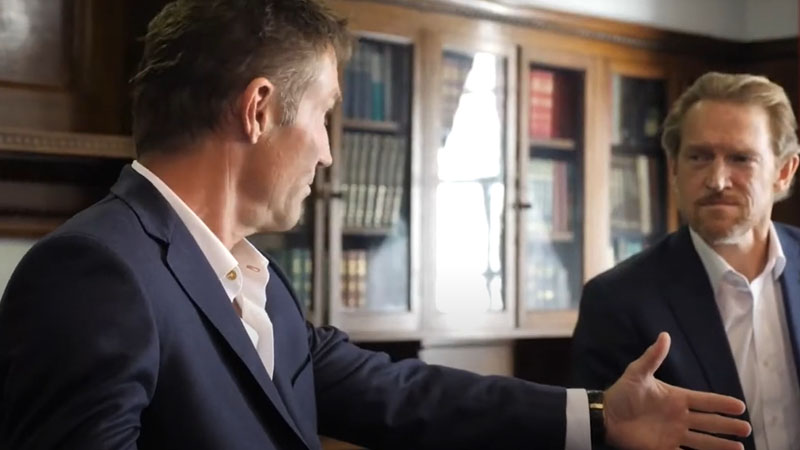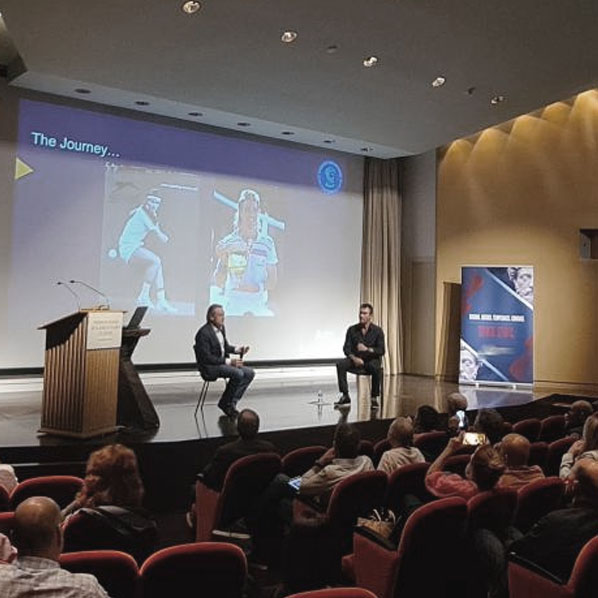-
About Us
-
Library
-
What We Do
-
Latest
- Shop
The Importance of facing death
August 22

One of the most extraordinary, and difficult, practices proposed by the Stoic philosophy is ‘memento mori’, which is an exercise of contemplation of death and mortality. Let´s be honest, we don´t like to talk about it, we don´t even like to think about it, and yet, it is the one thing we know will eventually happen to us and to those we love. If the pandemic did not convince you that thinking and, most of all, talking about death is necessary, check out the following ideas.
COVID has become, maybe, the most powerful reason for destroying the prejudices around death. This contagious and deadly disease has shown us not only that avoiding the subject doesn´t make it disappear but also that there is no better time to talk about death than now, being alive tomorrow is out of our control.
This is not a fun subject but what Stoics have said through centuries is that death is a fact, an event, and should be talked about, reflected upon as such, without any further judgement. It is not a bad thing nor a good one. It is an avoidable, real fact, core to the Law of Nature. It doesn´t mean you won´t want to cry, you won´t be touched by talking about it, you better feel something, that is part of the exercise.
Whenever we think of death as a fact, which it really is, we tend to be more practical, and stop looking for ways to escape from it or even to avoid it. We understand how precious our time is and realize surprise is part of the game and the only thing we can actually do to beat it, is being ready.
The question that might be popping out of your mind is, “ok, let´s try it, but how?” Epictetus teaches “Keep death and exile before your eyes each day, along with everything that seems terrible – by doing so, you´ll never have a base thought nor will have excessive desire.” Here he tells what to do and the profits we will gain from it.
Keeping the idea of death within your mind allows the subject to be under scrutiny, thus it can no longer be a dark subject. By “be before your eyes each day”, Epictetus is saying we shall think about it constantly. Understanding our bodies and that of those we care for are perishable, somewhat fragile, that it has an expiration date. That conclusion pushes you to acknowledge it is an event you have no control over and as such you should look for related aspects you can control and make sure to do your best on those.
Ok, we have no control over death, it is not a good nor a bad thing, it is just something we cannot avoid, what now? It is time to think about the aspects surrounding it that we have control over and manage it. Our bodies are not meant to last forever but what can I do to make it work properly till that last moment? Exercising, eating properly, doing regular check-ups, getting ready to the following day and the day after that. Remember live as if it was the last day but knowing it might not be. Prepare for the future.
Another aspect we have control of is the practicalities that must be dealt with when death happens. Leave your papers in order, with guidelines for the ones that outlive you. Funeral, life support, heritage, religious practices, debts. Think about it for just a second as you read these lines. If you were to die now, does your family know what to do? Donate your organs or not? Be buried or cremated? Would you like a memorial service? These are hard decisions to make when you are going through the grieving process, the ones that remain here deserve better from us.
Getting your businesses in order, permanently. Leave nothing unsaid. Forgiveness, ask and give, Love ask and give, apologies, and many more. Hospital halls are filled with requests for a little more time to say that one last thing. Don´t be one of those in regret, do all of these as you are alive and well.
What I love about this quote from Epictetus is that it brings so much information. He ends it saying we will not think a base thought, which means we won´t be spending our creativity and energy planning or hoovering over useless or harmful ideas. When we acquire a serious understanding that our life has an ending, we no longer wish to engage in losing our most precious gift, time. This is the one thing we have control of, how to spend our time, and we should make the most of it.
Besides, the great ancient Stoic also guarantees we won´t have excessive desire. We work hard and spend our time and energy wishing and struggling to get things we have no need. Excessive means what goes beyond what is really needed. It is that little more that might mean extra working hours, less chill time, and at the end of the day, was it worth it?
Summing up, learning how to die, and facing the fact that it is going to happen is the key to learn how to live.

